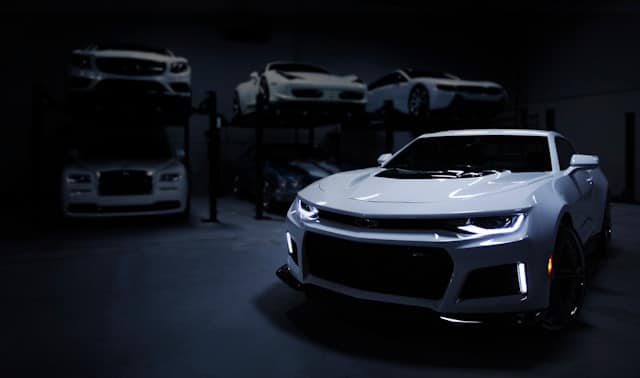Can Upgrading Your Car’s Crankshaft to a Forged Unit Enhance Engine Strength and Reliability?

As a car enthusiast, you’ve probably spent countless hours mulling over different ways to boost your car’s performance. You’re likely to have forged a certain obsession with engine power, reliability, and the individual parts that can influence these factors. In your quest for knowledge, you might have come across the idea of upgrading your car’s crankshaft to a forged unit. The question now is, can this truly enhance engine strength and reliability? Let’s delve deeper into this topic.
What is a Forged Crankshaft, and How is It Different from a Stock Crankshaft?
Before we jump into the nitty-gritty of forged crankshafts, it’s essential that you understand what this term means. A forged crankshaft is a type of crankshaft created through a specific manufacturing process designed to enhance its strength and durability.
Sujet a lire : How to Maximize the Performance of Your Car’s Clutch System for Better Power Delivery?
Compare this with a stock crankshaft, the standard component that comes pre-installed in your engine block. These stock components are typically made using casting methods, which although more economical, may not provide the same level of strength and durability as their forged counterparts.
The primary difference between the two lies in the manufacturing process. Forging involves shaping a piece of metal under extreme heat and pressure, giving the final product enhanced durability and resistance to wear and tear. On the other hand, casting, which is the process used for creating stock crankshafts, involves pouring molten metal into a mold. While it’s a more economical method, it doesn’t offer the same resistance to stress and strain as forging.
En parallèle : Upgrade your ride: discover performance parts for volkswagen
The Benefits of a Forged Crankshaft
Now that you’ve received a brief introduction to what a forged crankshaft is and how it differs from a stock crank, let’s delve into the benefits of this upgrade.
A forged crankshaft can significantly enhance the overall strength of your car’s engine. Thanks to the forging process, the metal in the crank is more compact, leading to increased rigidity. This means that a forged crank can better withstand the forces exerted upon it within the engine, which in turn can improve the engine’s performance and power output.
Furthermore, a forged crank is more likely to provide a dependable performance under intense conditions such as high-speed driving or heavy towing, where a standard crank might fail. This increased reliability can be particularly advantageous for those of you who regularly push your cars to the limit or use them in demanding conditions.
How Upgrading to a Forged Crankshaft Influences Other Engine Parts
The crankshaft is an integral part of your car’s engine, connected to several other components such as the pistons and rods. As such, upgrading your crankshaft will not only impact the crank itself but will also influence these connected parts.
A stronger, more reliable crankshaft is beneficial for the pistons and rods. Because the crank is better able to withstand the forces exerted within the engine, it can reduce the strain placed on these components, potentially extending their lifespan. Moreover, if you are considering boosting your engine’s power output through modifications like turbocharging, a forged crank is almost a necessity. It’s better equipped to handle the increased forces that come with elevated power levels.
Making the Decision: Will Upgrading to a Forged Crankshaft Be Worth It For You?
With all these potential benefits, it might seem like upgrading to a forged crankshaft is a no-brainer. However, it’s essential to consider your specific situation before making this decision.
If you use your car for regular commuting and occasional leisurely drives, a stock crankshaft will likely serve you just fine. Stock components are designed to handle the forces produced by the engine under normal driving conditions, and upgrading in this case might not yield noticeable benefits.
However, if you are a car enthusiast who likes to push your vehicle to the limits, frequently engage in high-speed driving, or are considering engine modifications for increased power, a forged crankshaft could be a worthwhile investment. This upgrade can provide the increased strength and reliability your engine will need to handle these demanding conditions.
Remember, every car and every driver is different. Therefore, before making any decisions, it’s essential to research thoroughly, speak with a professional, and weigh the pros and cons based on your specific situation. After all, information is power, and the more you know, the better equipped you’ll be to make the best decision for your vehicle.
The Complexities of Upgrading to a Forged Crankshaft
Let’s delve into the intricacies that come with upgrading to a forged crankshaft. This isn’t a simple bolt-on modification; it requires planning and consideration for the entire rotating assembly of your engine.
The first matter of concern is compatibility. You must ensure that the new forged crankshaft will fit properly within your engine. This relates not only to physical dimensions but also to the compatibility with other engine parts like the connecting rods, pistons, and the engine block.
The type of material used in the forged crankshaft also matters. Most are made from high-grade steel, but the specific type can influence the crank’s performance and longevity. For instance, a crankshaft forged from 4340 steel is a popular choice among car enthusiasts due to its excellent strength and durability.
Upgrading to a forged crankshaft often requires additional modifications to your engine. These could include upgrading the connecting rods and pistons to forged units and possibly needing to balance the rotating assembly. If you’re considering a forged crankshaft due to increased power from modifications like turbocharging, you’ll need to upgrade other parts of your engine to handle this increased power. For instance, forged pistons and beam rods are commonly installed along with a forged crank.
Cost-wise, a forged crankshaft and the additional required modifications can be quite substantial. There’s the cost of the parts themselves, along with labor costs for the installation and the necessary adjustments to the rest of the engine. Therefore, it’s crucial to factor these considerations into your decision-making process.
The Verdict: Upgrading Your Car’s Crankshaft to a Forged Unit
After traversing the complexities and benefits of a forged crankshaft, we arrive at the final question: Is it worth upgrading your car’s crankshaft to a forged unit?
The answer, as we’ve seen, depends on your specific circumstances. If you’re a car enthusiast who likes to push your car to its limits or is planning significant power-boosting modifications, a forged crankshaft could enhance engine strength and reliability significantly.
However, if you use your car for usual commuting and occasional leisure drives, a stock crankshaft will likely be sufficient. Upgrading to a forged crankshaft in this situation may not yield substantial benefits, especially considering the cost and complexity of the upgrade.
In conclusion, a forged crankshaft can indeed provide enhanced engine strength and reliability. However, whether or not this upgrade is worth it for you depends on your car usage and your appetite for modifications. Always consult with a professional, conduct thorough research, and weigh the pros and cons based on your unique situation. Making an informed decision is key to getting the most out of your beloved vehicle. Remember, as the thread starter of your car’s journey, you’ve got the steering wheel to drive it to its full potential.
